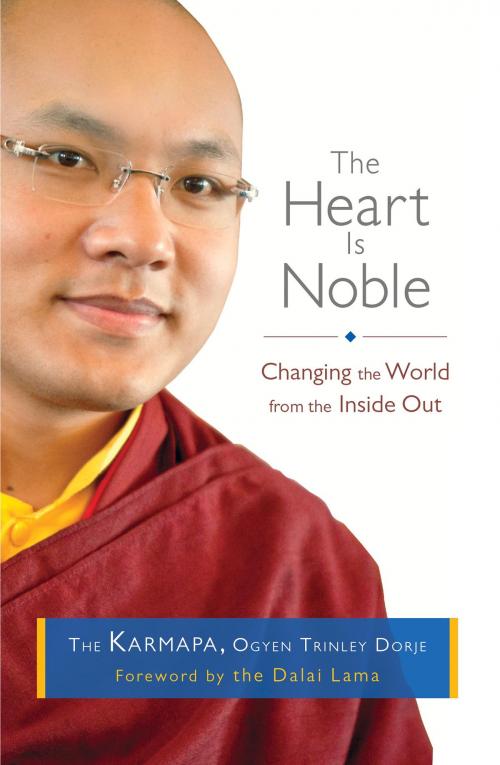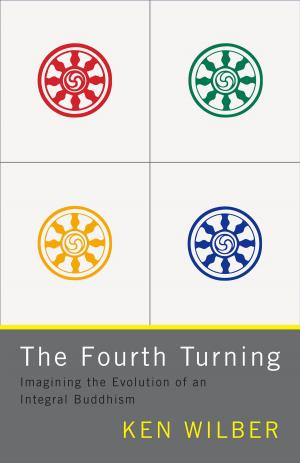The Heart Is Noble
Changing the World from the Inside Out
Nonfiction, Religion & Spirituality, Eastern Religions, Buddhism, Health & Well Being, Self Help, Self Improvement| Author: | The Karmapa, Ogyen Trinley Dorje | ISBN: | 9780834828100 |
| Publisher: | Shambhala | Publication: | February 19, 2013 |
| Imprint: | Shambhala | Language: | English |
| Author: | The Karmapa, Ogyen Trinley Dorje |
| ISBN: | 9780834828100 |
| Publisher: | Shambhala |
| Publication: | February 19, 2013 |
| Imprint: | Shambhala |
| Language: | English |
If you are inspired to take up his challenge, the Karmapa offers a path for participating in a global community that is based on compassion. In these chapters, he shares his vision for bringing social action into daily life, on a scale we can realistically manage through the choices we make every day—what to buy, what to eat, and how to relate honestly and bravely with our friends and family and coworkers. His fresh and encouraging perspective shows us that we have the strength to live with kindness in the midst of the many challenges we face as socially and environmentally conscious beings. Because he sees the world through the lens of the interdependence of all beings, he sees that humans can change social and environmental problems by changing their attitudes and actions. And so, he shows ways that we can change our world by changing ourselves—by examining our own habits of consumption and by being willing to look into how our food reaches our table and how the products we buy are made. In his chapter on gender, he points out that we don’t have to label others according to a social construct.
If his viewpoint seems optimistic, it is—and it’s also demanding. The Karmapa calls on us to open our mind and heart to the innumerable connections we share with others—in our families, communities, social systems, and on our planet. Thanks to the depth of his spiritual training, and the breadth of his curiosity about the world and his love for it, he presents a relevant framework for understanding what it means to be human now—and why it’s imperative that we concern ourselves with the well-being of all others. He points to a world we can create through our own effort, using a resource we already have in abundance—the basic nobility of our human heart.
If you are inspired to take up his challenge, the Karmapa offers a path for participating in a global community that is based on compassion. In these chapters, he shares his vision for bringing social action into daily life, on a scale we can realistically manage through the choices we make every day—what to buy, what to eat, and how to relate honestly and bravely with our friends and family and coworkers. His fresh and encouraging perspective shows us that we have the strength to live with kindness in the midst of the many challenges we face as socially and environmentally conscious beings. Because he sees the world through the lens of the interdependence of all beings, he sees that humans can change social and environmental problems by changing their attitudes and actions. And so, he shows ways that we can change our world by changing ourselves—by examining our own habits of consumption and by being willing to look into how our food reaches our table and how the products we buy are made. In his chapter on gender, he points out that we don’t have to label others according to a social construct.
If his viewpoint seems optimistic, it is—and it’s also demanding. The Karmapa calls on us to open our mind and heart to the innumerable connections we share with others—in our families, communities, social systems, and on our planet. Thanks to the depth of his spiritual training, and the breadth of his curiosity about the world and his love for it, he presents a relevant framework for understanding what it means to be human now—and why it’s imperative that we concern ourselves with the well-being of all others. He points to a world we can create through our own effort, using a resource we already have in abundance—the basic nobility of our human heart.















